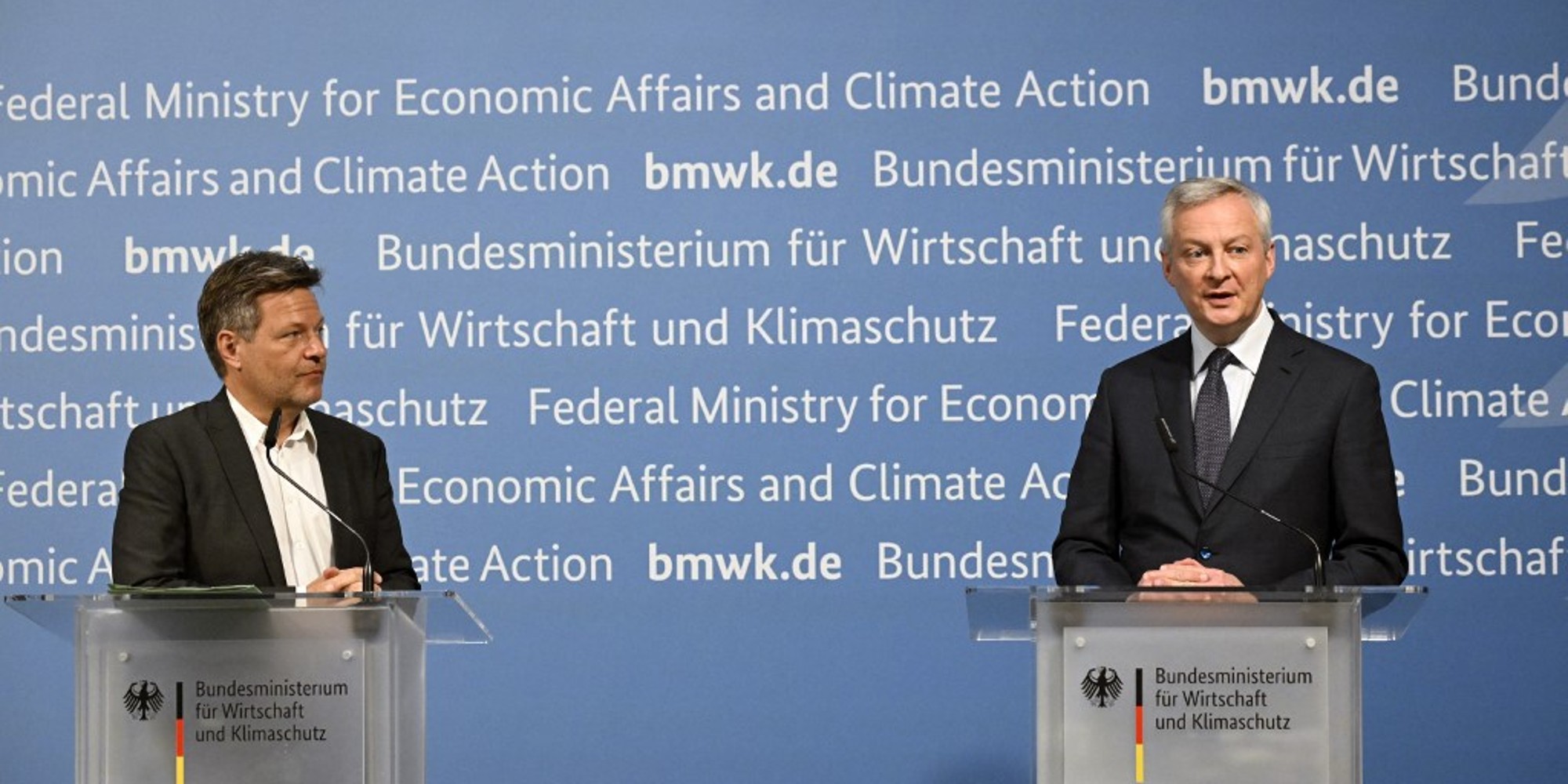Europe 1 with AFP 5 p.m., March 31, 2022
The Russian gas issue is currently at the heart of a battle between European countries and Vladimir Putin.
On Thursday, the Kremlin leader recalled that Russia demanded payment in rubles for its gas.
What the Europeans refuse, even if France and Germany have assured that they are working on a potential stoppage of deliveries.
Vladimir Putin announced Thursday that buyers of Russian gas from "unfriendly" countries will have to pay in rubles from accounts in Russia from Friday on pain of being deprived of supplies, a measure affecting especially the European Union.
However, the price of gas remains denominated in the currency of the current contracts, usually in euros or dollars.
"They must open accounts in rubles in Russian banks. And from these accounts they will have to pay for the gas delivered, starting tomorrow," Vladimir Putin said on television after signing a decree to that effect.
He added that in the event of refusal, “the current contracts will be stopped”.
"If these payments are not made, it will be considered a breach of obligations on the part of the buyer, and this will have all the necessary consequences," insisted Vladimir Putin.
Paying in rubles would have 'no impact' on prices, Putin says
He recalled that this measure was a response to the freezing of some 300 billion dollars of foreign currency reserves that Russia had abroad, a sanction decided by the West in retaliation for the Russian offensive in Ukraine.
Moscow published a list of "unfriendly" countries in early March, which includes the United States, members of the European Union, the United Kingdom, Canada, Japan, Switzerland, Taiwan, South Korea, Norway and Australia.
EU states are the main consumers of Russian gas.
Vladimir Putin insisted that paying in rubles would have no effect on volumes or prices, which are formulated in most contracts in foreign currencies.
The decision to switch to ruble invoicing should allow Russia to support its national currency, which has been heckled by sanctions, but will deprive it of a source of foreign currency.
Already, Russia obliges its exporters, including Gazprom, to convert 80% of their turnover into roubles.
These measures and a key interest rate of 20% enabled the Russian currency to recover.
After dropping considerably in the wake of the start of the Russian offensive on February 24, it is back to levels close to those recorded before the assault.
France and Germany anticipate a potential stoppage of Russian gas deliveries
Germany and France are "preparing" for a potential stoppage of Russian gas imports, the governments of the two countries said on Thursday, which also reiterated their opposition to any payment in rubles for deliveries.
"There may be a situation in which tomorrow (...) there will be no more Russian gas", and "it is up to us to prepare these scenarios, and we are preparing them", declared the minister French Minister of Economy and Finance Bruno Le Maire at a press conference with German Minister of Economy Robert Habeck.
Scholz assures that Europe will continue to pay for Russian gas in euros or dollars
Berlin and Paris have at the same time reiterated their refusal to pay in rubles for deliveries of Russian gas, as requested by Vladimir Putin.
"It is written in the contracts that the payments are made in euros and sometimes in dollars," German Chancellor Olaf Scholz explained at a separate press conference also organized Thursday in Berlin.
"I made it clear to the Russian president that it will stay that way" and "companies want to be able to pay in euros and will do so," he added.
"The contracts provide for a currency in which they are executed and therefore the contracts must be executed in the currency provided", hammered for his part Bruno Le Maire.
Before the war, the European Union imported 40% of its gas from Russia.
Germany was particularly dependent, with a proportion of 55%.

